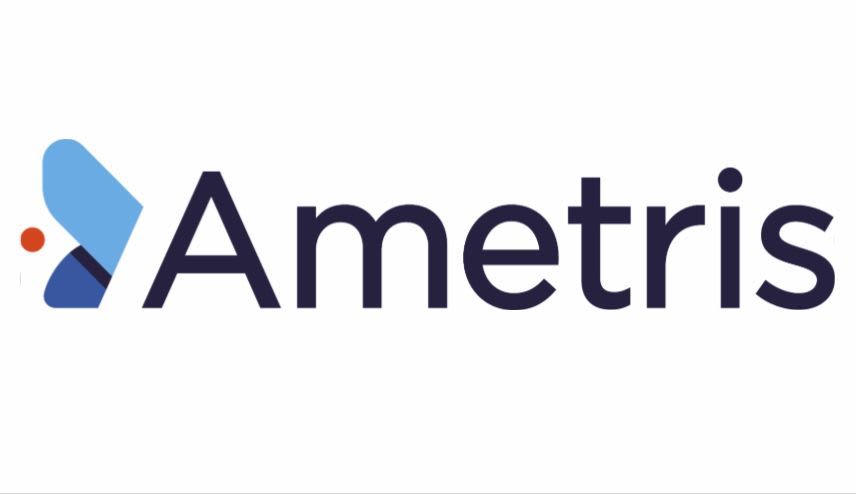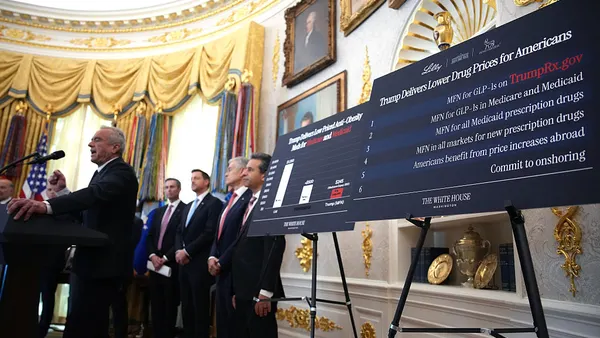Pharma’s steadfast goal to dismantle the government’s drug pricing program appears to be losing momentum, at least on the surface.
Novartis, Bristol Myers Squibb and Johnson & Johnson racked up court losses this month in cases challenging the legality of drug price negotiations created under the Inflation Reduction Act — adding to over a dozen other failed attempts since the 2022 bill was signed into law.
But the legal winds could be shifting.
In one of the recent decisions, a three-judge panel for the 3rd Circuit Court of Appeals shot down an appeal for an earlier ruling against BMS and J&J — but one judge issued a dissent this time around.
“Ultimately, the industry needs only one of their claims to work."

Mitchell Clough
Associate, Mintz
In their appeals claim, BMS and J&J levied a multi-pronged attack on the constitutionality of the Centers for Medicare and Medicaid Services’ program, which has already begun negotiating drug prices. The drugmakers argued that the program takes property without compensation, compels speech in violation of the First Amendment and forces them to participate in the negotiations by threatening “monetary penalties.”
“The Companies contend that the Program takes their property without just compensation in violation of the Fifth Amendment and compels them to speak in violation of the First Amendment. This Court rejects these arguments … I see things differently,” Judge Thomas Hardiman wrote in his dissenting view. “The Companies have persuasively argued that their constitutional rights were violated and that they are entitled to invalidation of the Program as applied to them.”
The opposing view from Hardiman, a conservative judge who was once on President Donald Trump’s short list for the Supreme Court, could provide a taste of the outcomes that would await pharma companies in a more right-leaning court. Ultimately, the industry has its sights set on winding up in the highest right-leaning court in the land: the Supreme Court.
“Hardiman’s recent dissent in the [BMS/J&J] cases is a positive sign for them,” said Mitchell Clough, an associate at the law firm Mintz. “That dissent could spark interest among the Supreme Court justices as they begin to consider the manufacturers’ likely petitions.”
SCOTUS or bust
An indication of how pharma’s IRA challenges might fare in front of the Supreme Court could materialize in the 5th Circuit, where the industry’s top lobbying group, PhRMA, is appealing an earlier Texas court loss. The 5th Circuit is expected to render a decision in PhRMA’s appeal “soon,” and one judge has already expressed “some skepticism about the negotiation program’s legality,” Clough said.
“The 5th Circuit recently entered an expedited briefing schedule in that case, suggesting the court is willing to move quickly in rendering a decision,” Clough explained. “Given the court’s general conservative leanings, we expect it to be one of the more hospitable environments for the industry’s claims.”
PhRMA has railed against “unintended consequences” of several provisions in the IRA, including a rule that subjects small molecule drugs to price negotiations before biologic treatments — what’s now described as the “pill penalty.” The group’s legal arguments against the IRA have also hinged on alleged violations to constitutional rights.
Of myriad legal arguments being used by pharma companies, Clough believes the takings clause of the Fifth Amendment, which guarantees that the government compensates owners when seizing private property, could ultimately prevail.
“Their takings clause claim seems to be one of the more promising avenues. Judge Hardiman notably signed an opinion in the spring rejecting AstraZeneca’s procedural due process claim, yet dissented on [BMS/J&J’s] takings clause claim,” Clough said. “That distinction offers some signals about where the conservative justices, or the judges in the 5th Circuit, may land.”
Although pharma has yet to defeat the government in court, the industry is playing the long game for a potential showdown on a bigger stage. AstraZeneca recently petitioned the Supreme Court to review an earlier circuit court denial to an IRA appeals claim. If SCOTUS agrees to hear the case, it could hand down a decision as soon as June 2026, Mintz associates wrote in a recent update about pharma’s IRA challenges.
“The industry has little incentive not to pursue Supreme Court review,” Clough said. “Although a circuit split would likely tee up the case even more clearly for the Court’s review, which could still be coming with the 5th Circuit, these are significant issues of constitutional law.”
With suits playing out across the country, pharma has cast a wide net of opportunities to create a challenge that Supreme Court justices are willing to entertain.
“Ultimately, the industry needs only one of their claims to work,” Clough said.














